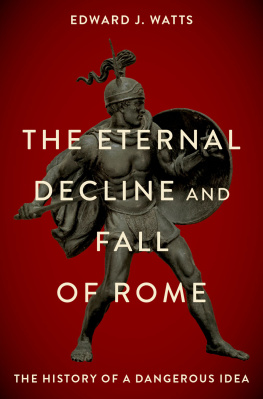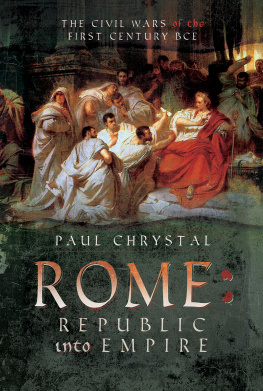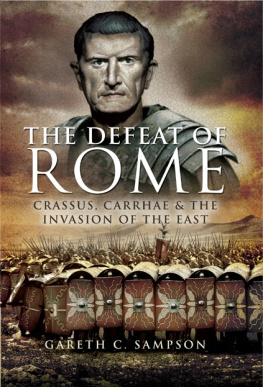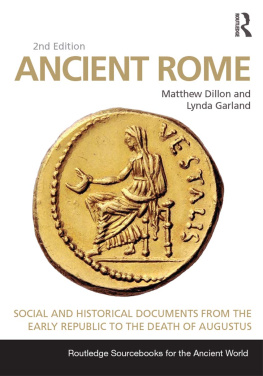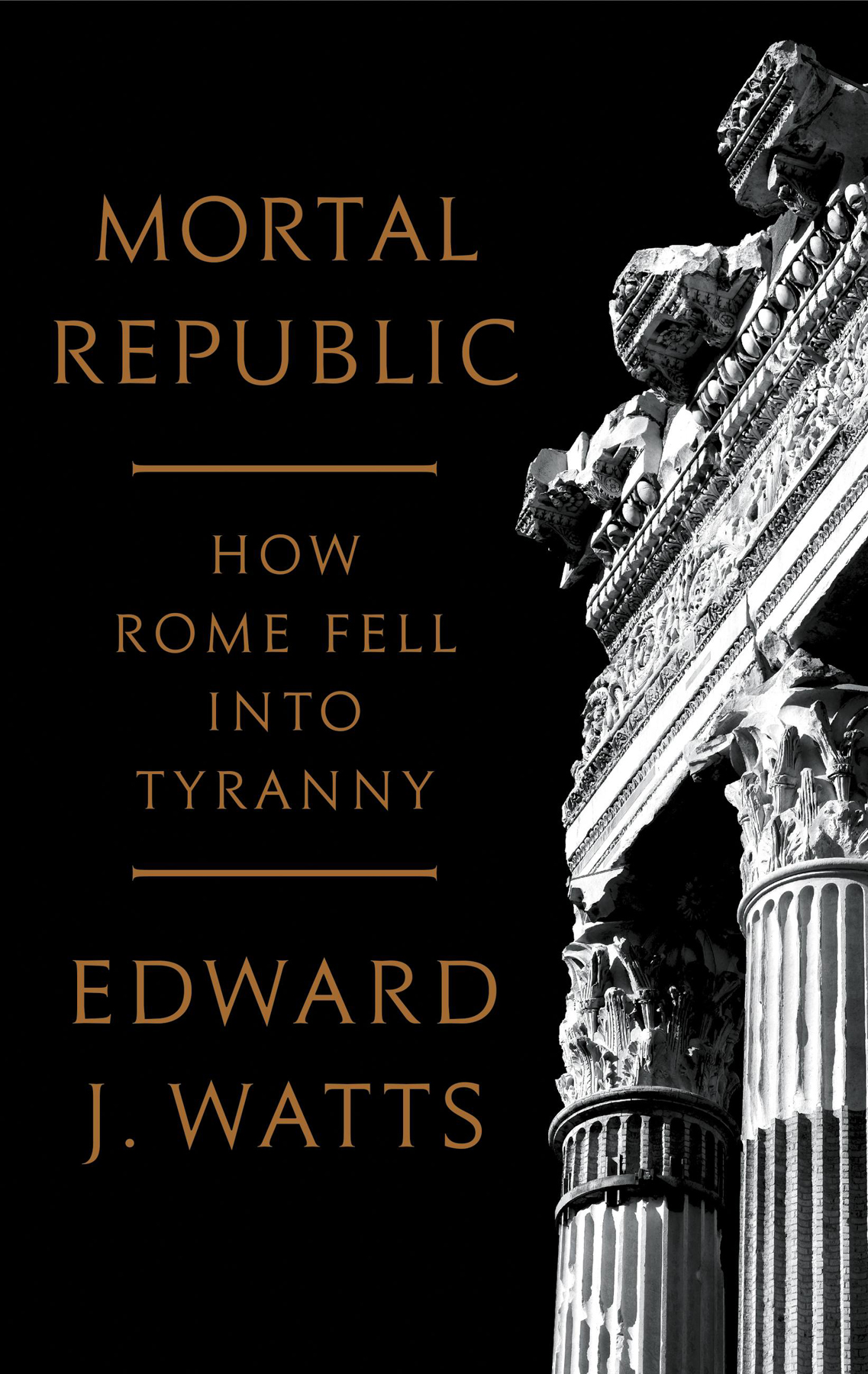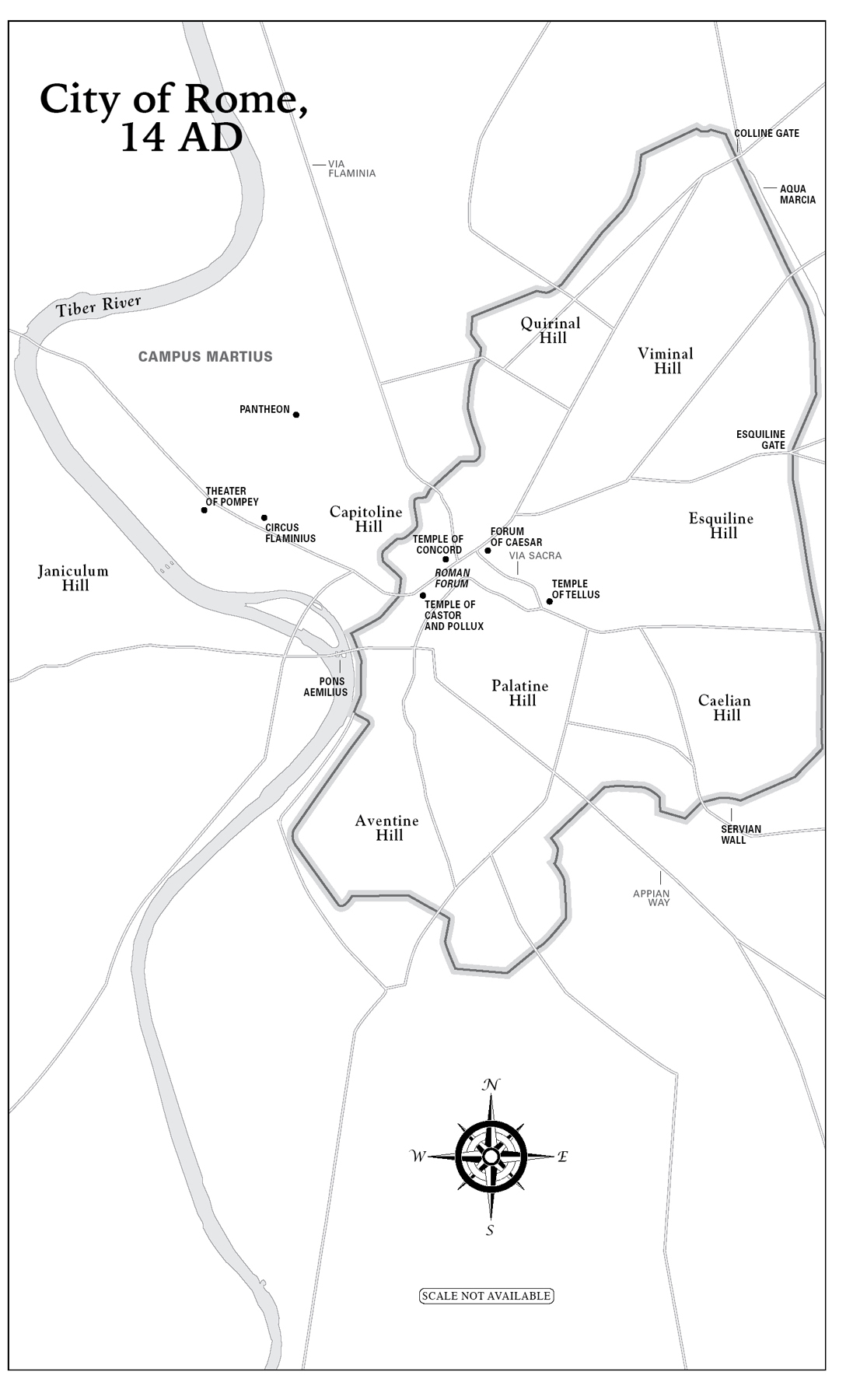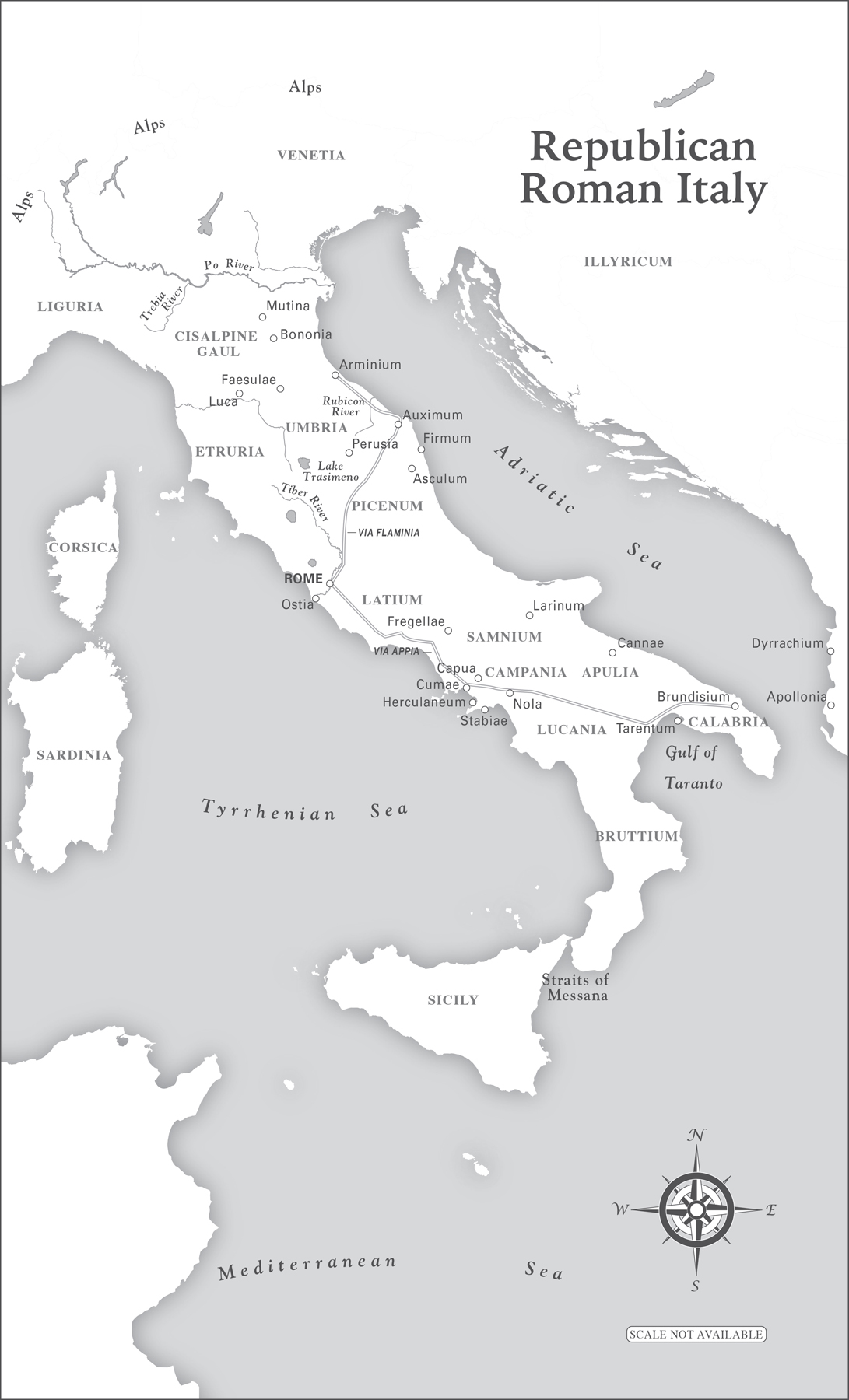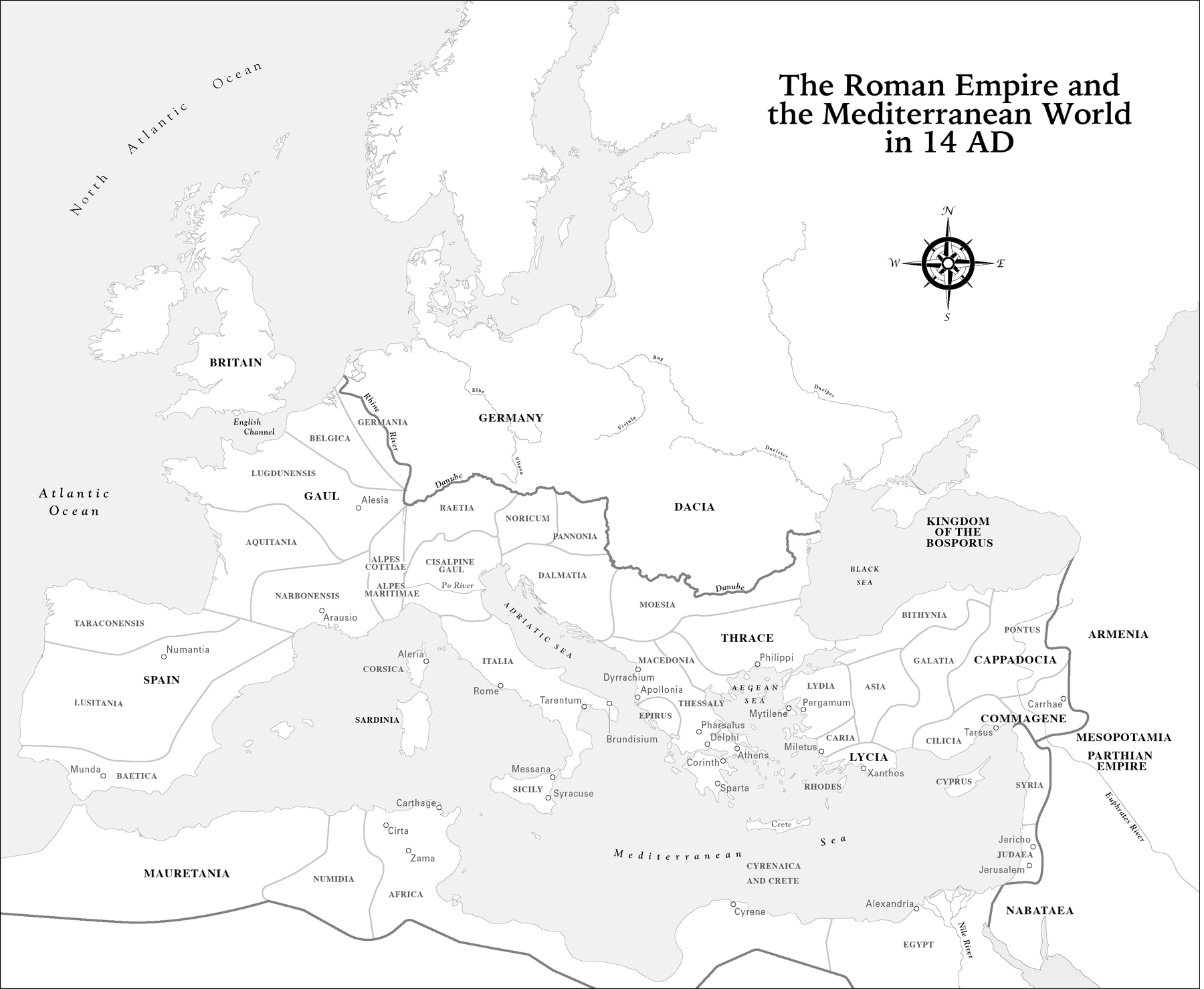T HIS BOOK GREW OUT OF a series of conversations with my children and my students about the ways in which antiquity can help us understand the challenging and occasionally alarming political realities of our world. Each conversation began with a question about whether history repeats itself, a question that has been asked much more frequently over the past two years as journalists and historians turn to the recent past to try to explain an unpredictable present. The past is no oracle and historians are not prophets, but this does not mean that it is wrong to look to antiquity for help understanding the present. The republics that are now so strained did not, like Athena, spring fully formed from the head of Zeus in the eighteenth century. Their founders modeled them on older, extremely successful republics that preceded them. Rome offered the oldest and most successful republic on which many modern states were patterned. The ancient Roman Republic is, of course, very different from a modern state, but the Roman Republics distribution of power and its processes for political decision making deeply influenced its modern descendants. The successes and failures of Romes republic can show how republics built on Romes model might respond to particular stresses. They also reveal which political behaviors prove particularly corrosive to a republics long-term health. I hope that this book allows its readers to better appreciate the serious problems that result both from politicians who breach a republics political norms and from citizens who choose not to punish them for doing so.
A book like this cannot be written without the help, support, and input of many students, friends, and colleagues. I want to first thank the students at Yale, Indiana University, and the University of California, San Diego, I have taught and learned from over the past two decades. Their questions and concerns about the growing political dysfunction descending upon the world around them prompted me to undertake this project. I have benefited greatly from conversations with members of the San Diego Greek community about the relevance of the classical world to contemporary situations. I am particularly thankful to Carol Vassiliadis, whose support for research at UCSD encouraged me to explore more deeply the history of the Roman state that would become Byzantium.
Seth Lerer, Kasey Pfaff, Ben Platt, Denise Demetriou, Karl Gerth, Eric Robinson, Michael Kulikowski, Lieve Van Hoof, Anthony Kaldellis, Gavin Kelly, Scott McGill, David Frankfurter, Peter Van Nuffelen, Johannes Hahn, and Giovanni Alberto Cecconi are among the many friends and colleagues who have shared ideas and suggestions. Josiah Osgood was an amazing resource in the early stages of the project, sharing ideas and a draft manuscript of his wonderful book Rome and the Making of a World State. Cristiana Sogno served as an insightful and erudite sounding board as well as a careful editor who offered comments on many chapters. Much of the book manuscript was completed while I was a fellow at the Israel Institute for Advanced Study at the Hebrew University in Jerusalem. I could not have asked for a more intelligent and friendly group of colleagues. I thank Sarit Kattan Gribetz, Alfons Frst, Maren Niehoff, Gretchen Reydams-Schils, Carlos Levy, Joshua Levinson, Ishay Rosen-Zvi, Al Baumgarten, David Lambert, Laura Nasrallah, Eve-Marie Becker, and Avigail Manekin for creating such a wonderful environment in which to work and think. I am especially grateful to Sarit and Alfons for reading drafts of chapters and offering suggestions for improving the introduction and conclusion. I am also very appreciative of the careful and insightful editing that Brian Distelberg and Christina Palaia have done on this manuscript and the work that Lara Heimert and the rest of the editorial team at Basic Books have done to move the book through production. The book is much better because of the time and energy that all of these people put into it.
My deepest and most profound thanks go to my wife, Manasi Watts, my children, Nate and Zoe, my parents, Dan and Karen Watts, and my in-laws, Brij and Sunanda Bhargava. This book would not have taken form and certainly would not have been completed without their generosity, patience, and forbearanceespecially during the time I spent in Jerusalem. The willingness of Brij and Sunanda to visit me in Israel made the time away much easier. These are gifts for which I can never repay any of them. Both Nate and Zoe have the remarkable ability to frame the sorts of insightful and challenging questions that this book cannot answer but that I hope it may equip them to begin to work through on their own. Manasi helped me immensely as I struggled to tell the story of Romes republic in a way that had relevance for a modern, politically astute audience. Her strength, courage, and personal resilience continually inspire and amaze me. With each sentence I write, I hear her voice telling me to make it more efficient and concrete. Even if my sentences remain too long, I hope, in the end, that this book shows how much I have taken her advice and her example to heart.


